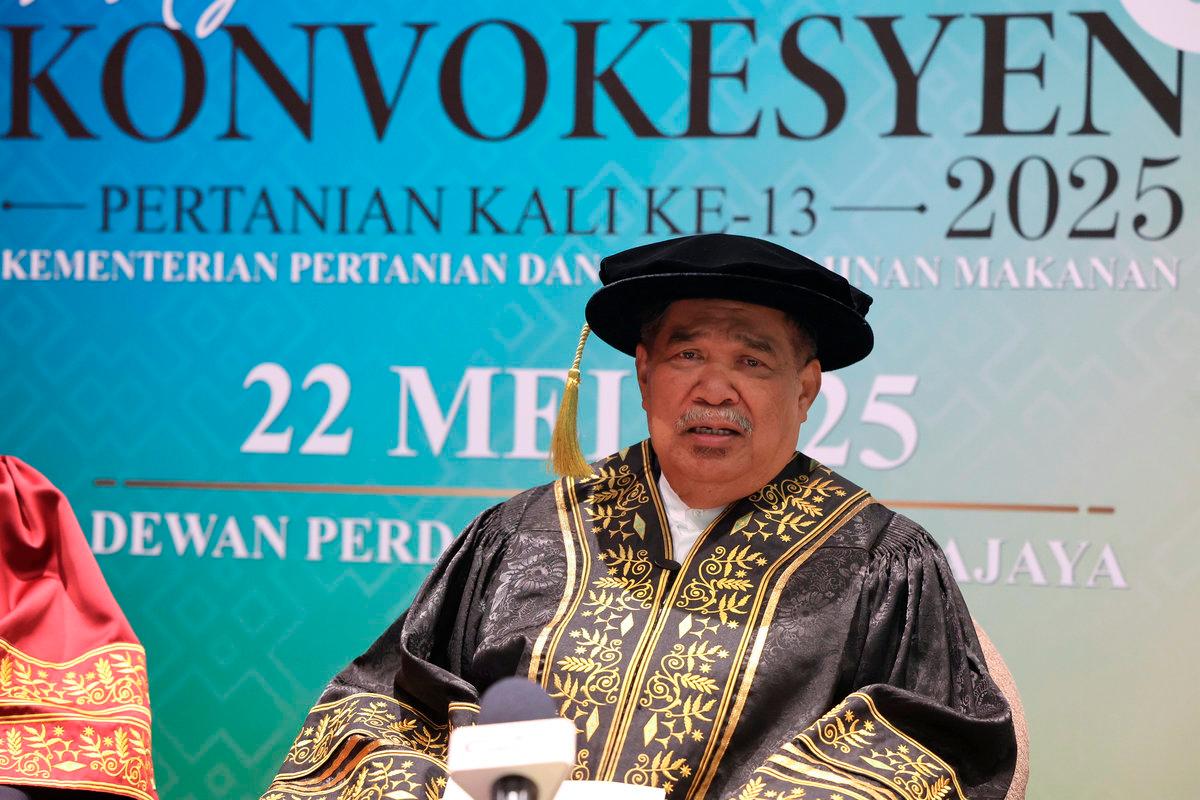PUTRAJAYA: The employability rate of graduates from Technical and Vocational Education and Training (TVET) in the field of agriculture under the Ministry of Agriculture and Food Security (KPKM) recorded a 78.1 per cent increase in 2023 compared to 72.3 per cent in 2022.
Agriculture and Food Security Minister Datuk Seri Mohamad Sabu said KPKM hopes the employability rate of Agricultural TVET graduates will continue to improve and exceed the set target, which is above 80 per cent.
“Various activities and programmes have been and will be implemented to ensure the Agricultural TVET graduates produced will fulfil the labour skills needed in the industry,” he said when speaking at the 13th KPKM Agricultural convocation ceremony here today.
He said so far, KPKM had produced a total of 25,783 graduates since the programme began in 1969.
“It is hoped that with the increase in the number of skilled workforce in the agri-food sector, it will enhance the competitiveness of the country’s agri-food industry in the global market and subsequently ensure the sustainability of the country’s food supply,“ he said.
Taking note of the lack of interest among youth in the agri-food sector, Mohamad said KPKM will ensure efforts to increase youth involvement are driven by the application of new technology in teaching and learning.
“It includes involvement and strategic cooperation with the private sector, as well as investment in high-value industries that can enhance the country’s competitiveness and food security,“ he said.
He said that throughout 2024, KPKM had implemented strategic initiatives that include the enhancement of facilities and amenities at the Agricultural TVET Training Institute, curriculum improvements for empowerment and increased youth engagement.
“In 2024, a total of RM26.3 million was allocated to improve facilities and amenities at all agricultural TVET training institutes, and RM479,000 had been spent under the mechanisation and automation programme,“ he said.
Mohamad said this year, the mechanisation and automation allocation has been increased to RM1,353,300 which is a 182 per cent increase to ensure that the teaching and learning of trainees and students are at the best level and in line with the latest technological developments.
“KPKM through the Agricultural TVET Training Institute will continuously review and improve the curriculum used to meet the needs and demands of the industry.
“Also in 2024, three National Occupational Skills Standards (NOSS), two Written Instructional Materials (WIM), and one TVET Provider had been updated for use in all related Agricultural TVET Training Institutes,“ he said.
He also said the improvements include additions to the Competency Units, based on the current needs of the industry, the latest technological developments and the Internet of Things.
“All of these aim to produce graduates who are competent in various fields of agriculture, not only to meet the demand for skilled labour from the public and private sectors but also to produce graduates who will become entrepreneurs in the field of agriculture,“ he added.
At the convocation, a total of 448 graduates received certificates and diplomas, including the Malaysian Skills Diploma (DKM), Malaysian Skills Certificate (SKM), Agricultural Certificate, Malaysian Veterinary Health Certificate and Fisheries Certificate.









